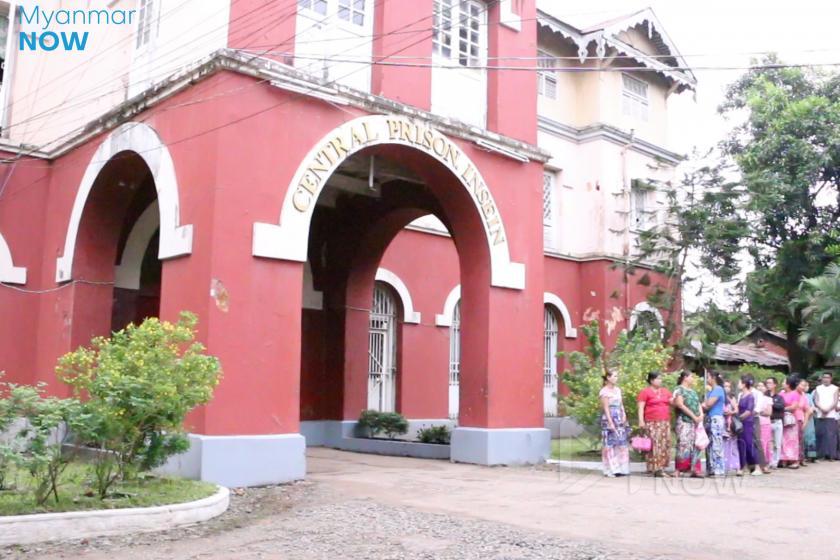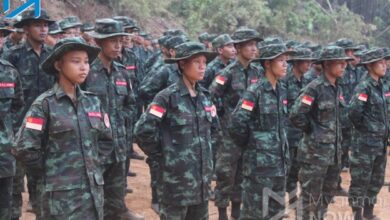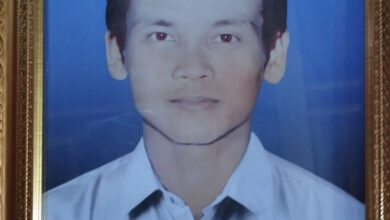
A 42-year-old man who was arrested while working as a volunteer night guard in Yangon two months ago died in prison on Wednesday night, according to relatives.
Thein Win was arrested on March 6 while on duty as a night guard on 10th Street in Yangon’s Lanmadaw Township. He was later charged with incitement under Section 505a of the Penal Code and held at Insein Prison.
His parents told Myanmar Now they learned about his death on Thursday, when they went to the prison to inquire about his situation. They took his body to the Yayway Cemetery to be cremated the same day.
Thein Win was sent to the prison hospital shortly after fainting during a hearing on Tuesday. He passed away the next day after suffering from elevated blood-sugar levels, according to his mother, Win Win, citing information from prison staff.
“They should have informed us about his death,” she said, noting that her visit on Thursday was unrelated to her son’s health.
“Prison officials only told us [about Thein Win’s death] after they accepted items we had brought to the prison for him,” she added.
Thein Win had been hospitalised with diabetes in early 2019. The family submitted the medical records through a lawyer to request bail, but there was no response during his detention.
He was in good condition when he was arrested, she said.
However, inmates who were released in early April informed her that his health was deteriorating in detention, prompting the family to request that he be transferred to a private hospital for medical care.
“Because it wasn’t a big ‘crime’, we requested that he be hospitalised at a private hospital because prison hospitals are so poorly equipped. They have nothing. They probably only have normal medicines for coughs and cold,” she said.
“The conditions in prison are so squalid. He was quite overweight, over 200lbs. He couldn’t use a squat toilet, which is all they have in prison. So I heard that he wasn’t eating much, to avoid having to go to the toilet,” she said.
Thein Win’s father said he did not see any evidence of torture, noting that prison officials showed them a photo of their son’s body taken shortly after his death and asked them if they could see any bruises.
A Japanese journalist who was recently released from custody has spoken of torture in interrogation centres and the poor conditions inside Insein Prison.
Overcrowding is a major problem at the prison, according to the Assistance Association for Political Prisoners (AAPP), an advocacy group that monitors prison conditions in Myanmar.
Aung Myo Kyaw, an official for the group, told Myanmar Now in April 2020 that the prison was holding at least 10,000 inmates, or well over double its capacity, at the time.
Since seizing power on February 1, the military has arrested and detained thousands of civilians, including students, politicians, activists and journalists, as part of its effort to crush anti-coup protests.
More than 4,200 are still in detention, according to the AAPP’s latest tally.
The military council released more than 20,000 mostly non-political prisoners in a nationwide amnesty on February 12, but continues hold those deemed a threat to its hold on power.
The regime has also killed 810 civilians, including young children, in an effort to force the nation to submit to its rule.
![Resistance fighters holding heavy weapons ammunition in central Myanmar. (Photo: Freedom Revolution Force [FRF])](https://myanmar-now.org/en/wp-content/uploads/sites/5/2024/04/438869056_443267851680128_1706386881626943924_n-390x220.jpeg)


